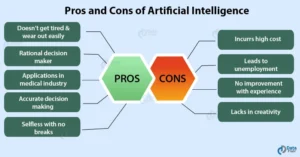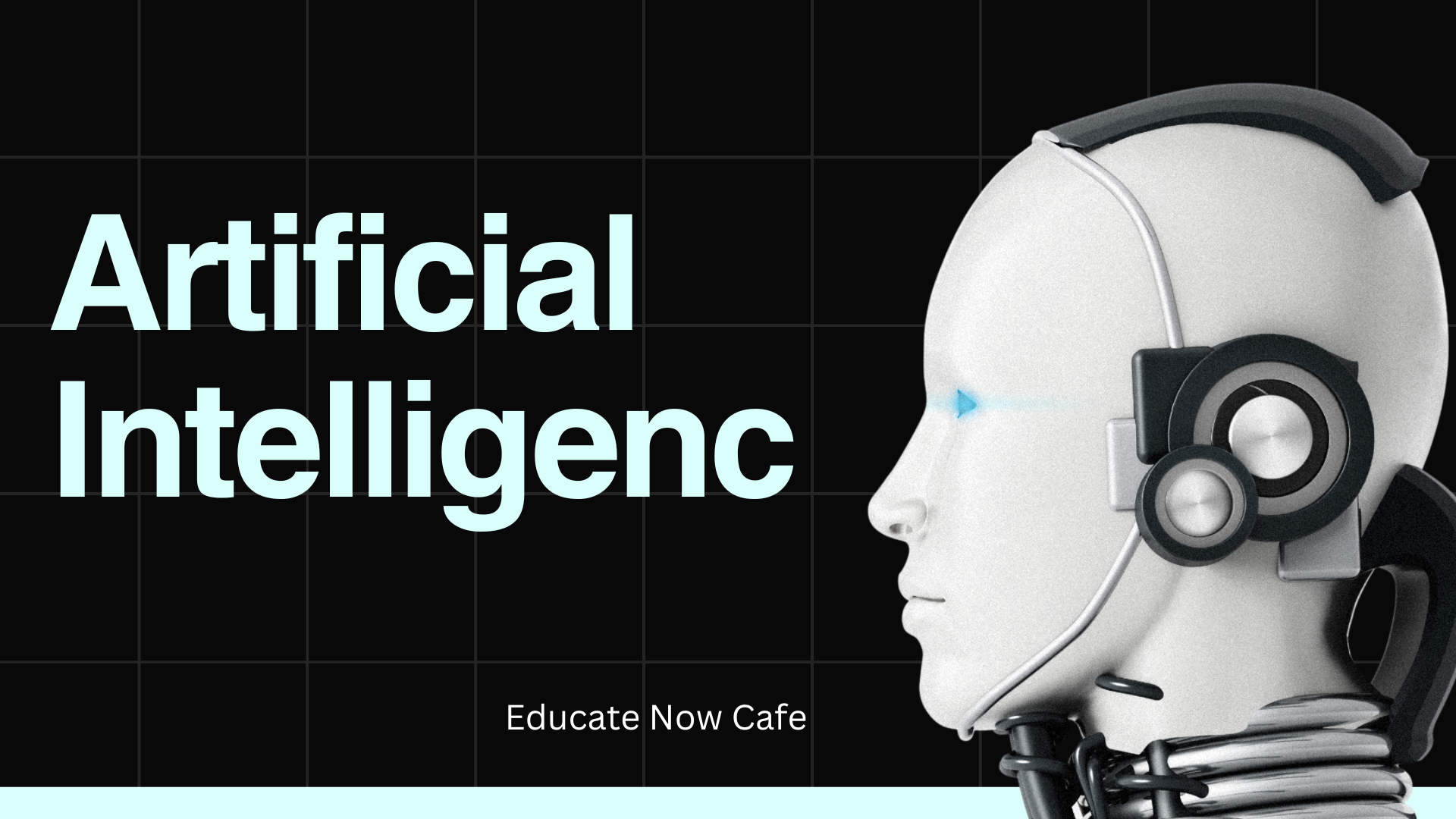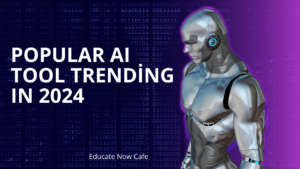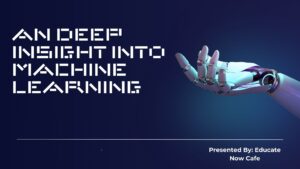An Brief Introduction To AI
Artificial Intelligence (AI) combines science and engineering to create intelligent computer programs and machines. When digital computers perform tasks that typically require human intelligence, it is referred to as AI. This technology allows computers to simulate human-like understanding and problem-solving. A well-known example of AI is OpenAI’s ChatGPT, which showcases the practical benefits and applications of AI in modern times. AI is utilized across diverse industries including healthcare, finance, education technology, and more. Common programming languages for AI development include Python, Java, Julia, and R, each offering unique advantages for building AI systems.
By delving into what artificial intelligence means, we can recognize its significant influence on our everyday lives and its potential to spur innovation in areas like healthcare, finance, and transportation. From intelligent assistants and automated customer support to sophisticated data analysis, artificial intelligence is shaping a smarter and more efficient future.
Definition Of AI as per Wikipedia: Artificial intelligence (AI), in its broadest sense, is intelligence exhibited by machines, particularly computer systems. It is a field of research in computer science that develops and studies methods and software that enable machines to perceive their environment and use learning and intelligence to take actions that maximize their chances of achieving defined goals. Such machines may be called AIs.
History Of AI
When we heard the name AI, we think a new concept that came in a market and totally grabs everyone intention but it is not a latest concept that came in a market. In 1950, Alan Turing originated the Turing test, after that first computer program that is chatbot was created by ELIZA in 1960s. Later By later in 2011, Apple announced a digital assistant called Siri and in 2015 ElonMusk with some other peoples established OpenAI. AI was first invented in 1950 and the idea of AI introduced or came in the world by a computer scientists John McCarthy.
What Is AI Innovation?
AI innovation involves creating and implementing new ideas, techniques, methods, technologies, and algorithms in the field of artificial intelligence. It includes developing new techniques to solve problems, improving existing AI systems, and creating new applications that utilize AI capabilities. This innovation supports various fields, such as education, healthcare, transportation, and finance, by addressing specific needs and solving particular problems.
Overall, AI innovation significantly advances the capabilities and applications of artificial intelligence, driving progress across multiple industries and addressing societal challenges.

Image Credit: https://data-flair.training/blogs/artificial-intelligence-advantages-disadvantages/#google_vignette
As you can see in the above images the pros and cons of AI, now you can see some other advantage and disadvantage of AI with explanations below:
Benefits of Artificial Intelligence
♦ Minimizing Human Error: A major benefit of AI is its ability to minimize human errors. AI systems are designed to perform tasks consistently, reducing mistakes that can arise from human factors. This is especially beneficial in data analysis, where AI can identify patterns in large datasets that humans might miss. This capability is crucial in fields like cyber security, fraud detection, and finance.
♦ Task Automation: AI can automate repetitive tasks, allowing human workers to focus on more strategic and creative aspects of their roles. By handling routine tasks, AI boosts efficiency and productivity within companies. Automation also reduces labor costs, leading to increased profitability. Additionally, AI helps maintain consistency in performing tasks, which is particularly important in industries with strict daily operational requirements.
♦ Round-the-Clock Availability: AI systems can operate continuously without the need for breaks, holidays, or rest. They are available 24/7, making them invaluable for data processing and customer support. For example, AI-powered chatbots can interact with customers at any time, providing assistance and resolving queries day or night. This constant availability is beneficial for both consumers and businesses.
♦ Accelerated Decision Making: AI excels in processing large amounts of data quickly, identifying complex scenarios, and aiding in decision-making processes. It can retrieve real-time data from various sources, such as social media and sensors, allowing organizations to make informed decisions based on current information. This is particularly vital in emergency responses and financial trading.
♦ Continuous Learning: AI systems, through machine learning and deep learning models, continuously learn and adapt. This ongoing learning process enables AI to improve and stay relevant over time. Users can benefit from AI’s evolving capabilities, as its models are regularly updated with new information.
♦ Speed and Accuracy: AI performs tasks with high speed and accuracy, minimizing errors. This is particularly valuable in applications such as autonomous vehicles and medical diagnostics. AI can quickly analyze large datasets, identify trends, and detect patterns much faster than a human could, make it an essential tool in many industries.
Drawbacks of Artificial Intelligence
♦ Limited Creativity: While AI can reduce the need for human labor, it lacks the creative abilities that humans possess. When it comes to tasks requiring a deep understanding of creativity, human emotions, and complex social interactions, AI often falls short.
♦ Reduced Job Opportunities: AI has the potential to replace numerous jobs, particularly those involving data analysis and repetitive tasks. Although AI can bring many benefits to organizations, it may also lead to unemployment. This is especially concerning in countries like India, where job availability is already a significant issue.
♦ High Costs: Developing and implementing AI technologies can be extremely costly, making them inaccessible for small businesses. The expense associated with AI can be a major drawback, as not all industries can afford to utilize these advanced technologies.
♦ Security Threats: A major downside of AI is the security risks it poses. AI can be misused for hacking and spreading false information, leading to significant security threats. AI algorithms can be exploited to invade privacy and carry out cyberattacks, making the digital world less secure.
♦ Privacy Concerns: AI often involves the collection and analysis of vast amounts of data, which raises significant privacy concerns. The potential for surveillance and privacy violations is a considerable disadvantage of AI systems.
Conclusion:
Artificial Intelligence holds tremendous promise for revolutionizing various sectors, from healthcare to finance, by automating tasks and providing deep insights through data analysis. However, it’s important to recognize the potential drawbacks, including limited creativity, job displacement, high costs, security risks, and privacy concerns. As we continue to develop and integrate AI into our daily lives, it is crucial to address these challenges thoughtfully to harness AI’s full potential while minimizing its negative impacts. Balancing innovation with ethical considerations will pave the way for a future where AI can enhance human capabilities and improve overall quality of life.












Nice Content